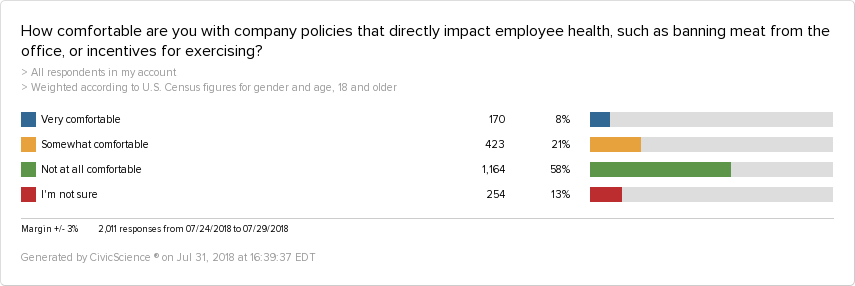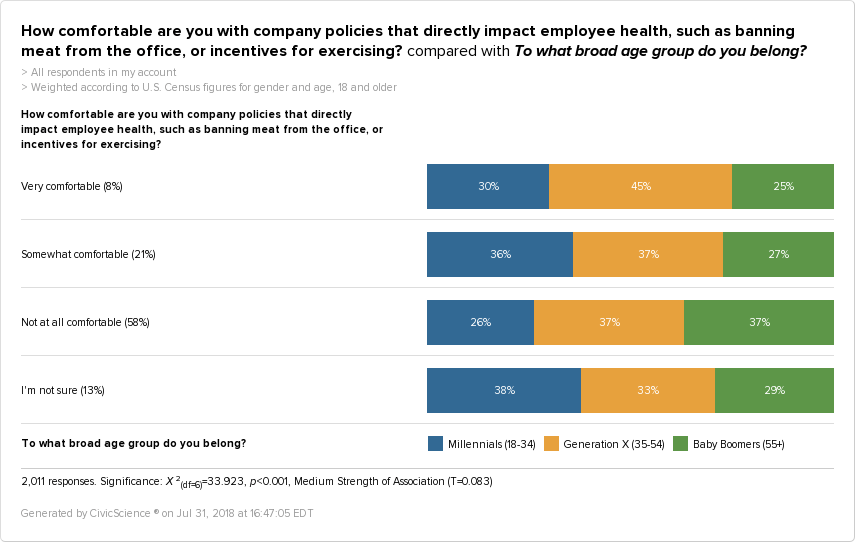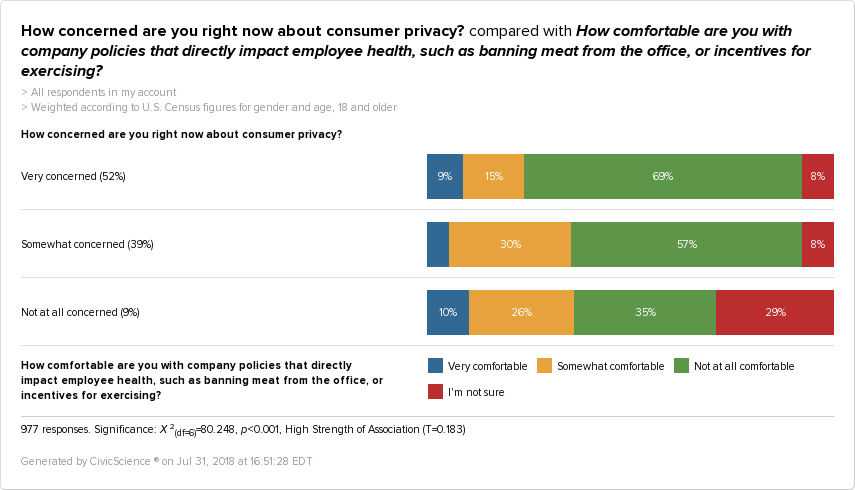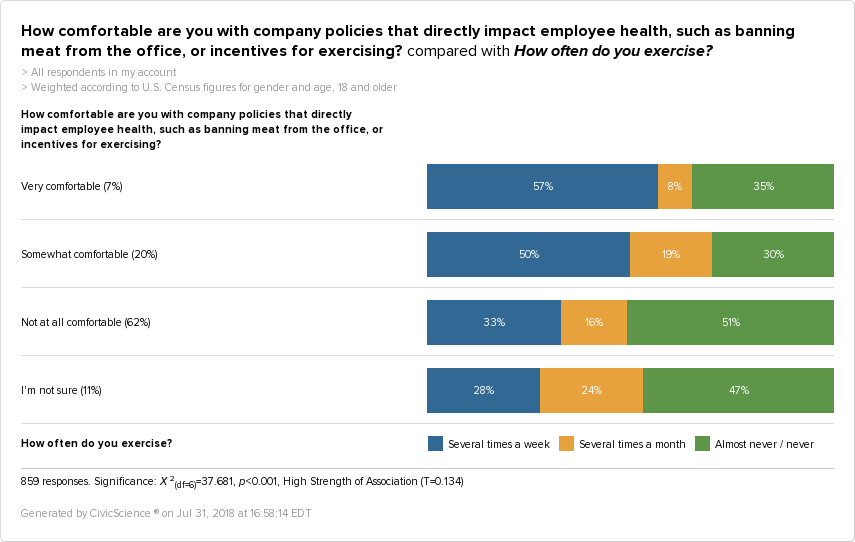Office-sponsored Apple watches for step tracking, gym subsidies, or the ban of meat from office- sponsored events. All of the above have been implemented in workplaces in the U.S. While companies strive to create a healthier workforce, it might make sense to check in with employee sentiment first.
CivicScience asked over 2,000 U.S. adults their comfort level when it comes to office health incentives.
The majority, 58% of U.S. adults, are “Not at all comfortable” with company-sponsored health initiatives.
Comfort or discomfort with these policies doesn’t follow any age trends. Gen Xers are most likely to be “Very comfortable” with office health incentive policies. Baby Boomers are most likely to be “Not at all comfortable” with such incentive programs.
What might most influence employee opinions of such programs? It looks like it comes down to privacy concerns and fitness.
Consumer and Company Privacy
When it comes to comfort with company-sponsored health programs, concern about consumer privacy comes into play.
The more concerned a person is about consumer privacy, the more likely they are to be “Not at all comfortable” with employee incentive programs. This strengthens the argument that for many, these policies can feel like an invasion of privacy rather than a benefit. Of course, companies have started to adopt these policies to proactively avoid healthcare costs and increase quality of life, however; to employees, it’s not a stretch to connect office-sponsored fitness trackers to an invasion of personal privacy.
Fit Getting Fitter
People most comfortable with office health incentive programs are most likely to be already working out.
It seems the more frequently people work out, the more comfortable they are with health policies. It’s unsurprising, and also highlights the struggles companies can face when attempting to change employee behavior.
For the majority, this policy wouldn’t change health behaviors, only reinforce them. People who are already focusing on health and fitness would continue to do so and vice versa. Based on data alone, it’s unlikely an incentive program would motivate activity from the population that “Almost never / Never” exercises.
Employee incentive programs are in their infancy in the corporate workplace. As it stands now, most U.S. adults aren’t comfortable with the concept, and those who would adopt the programs wouldn’t need to change behaviors. It’s an uphill battle for employers, especially when many employees interpret it as an invasion of privacy.












